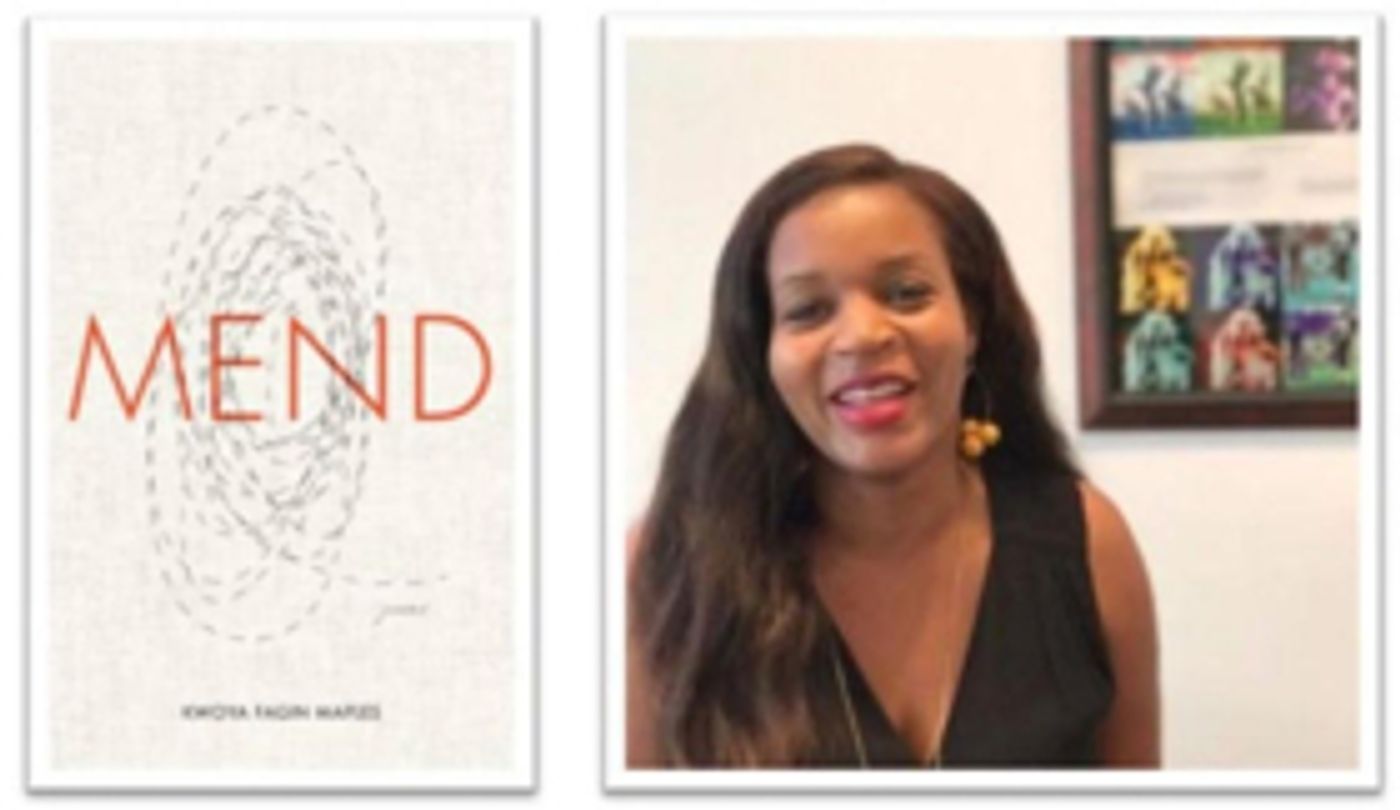New Poetry Collection Addresses Historic Wrongs

Between 1845 and 1849, the inventor of the speculum, James Marion Sims, experimented on enslaved women at his makeshift hospital in Mt. Meigs, Alabama, in his quest to conduct groundbreaking work in the field of gynecology. In his autobiography, The Story of My Life, Sims provides the names of only three of the at least eleven women he spent years conducting countless surgeries on-Anarcha, Betsey, and Lucy. These mothers were subjected to his experimentations in hopes of being cured from fistula (severe vaginal tears) suffered during difficult childbirth-without anesthesia, without the ability to consent, and without a voice of their own. Until now.
In Mend: Poems, Kwoya Fagin Maples provides the forgotten voice for these black women whose bodies were used to further science at the expense of humanity with profoundly intimate, and sometimes devastating, verse. She also connects her experience growing up in South Carolina and writing in Alabama to the traumatic past of the American South. In work that reflects "the literal beauty of the landscape, even though that beauty is deceptive," her poems travel along a jagged journey through Anarcha's, Betsey's, and Lucy's numerous surgeries, indignities, and confusions. "Today the Doctor Says He Will Be Gingerly / And I don't know what that means. / I think my mama knows cause one day / she said she used it in a pie." She intersperses her poetry with excerpts from Sims's autobiography to serve as a reminder that these enslaved women were seen as accessories to discovery, not as the mothers, daughters, and lovers they were.
Maples begins by weaving together poems that reflect the "bruised fruit" that were the bodies of these women as they constantly endured the agony, addiction, and humiliation that was the price of furthering Sims's career. "[I]f I could ball my body up / this tight / he'd never pull me / apart. / he'd never / eye what / I've never / seen myself." In the voices of these women, she shows that "[t]here's suffering here- / all of us spilling and moaning it." She also gives voice to the experiences of the poet as she travelled through Mt. Meigs, where "fields of ugly cotton plants persist, / their bolls colded over and forever done, afflicting the stalks / like boils."
Maples juxtaposes the early poems with others in the voices of Anarcha, Betsey, and Lucy that recall a time before opioid addiction and painful surgeries. She recounts the tender moments, such as catching fireflies "for hours in the evenings / with my girl-cousin, Irene. / I can see us now, / just running around in our bare feet / while the stars turn on / and off," with the painful ones, such as "Elegy for a Stillborn." In doing so, Maples acknowledges entirety of the lives that each of these women led outside of years they endured in Sims's makeshift hospital.
Maples concludes Mend with poems that convey the strength and resilience of the female body. She brings light to the true warriors of scientific discovery-the black women who are three times more likely to die from childbirth than whites. In the final poem, "My Mother Bathes Me After I Give Birth," Maples recounts the sweet moments of hushed tranquility for Anarcha, Betsey, and Lucy following their trauma-"I am an aching shell but her touch says I am worth tenderness." In doing so, she restores the voice and the humanity that Sims, and history, have denied them.
Kwoya Fagin Maples teaches creative writing at the Alabama School of Fine Arts. Her work has appeared in a chapbook, Something of Yours, and in several journals and anthologies, including Blackbird, the Berkeley Poetry Review, the African-American Review, pluck!, and Obsidian.
Videos

